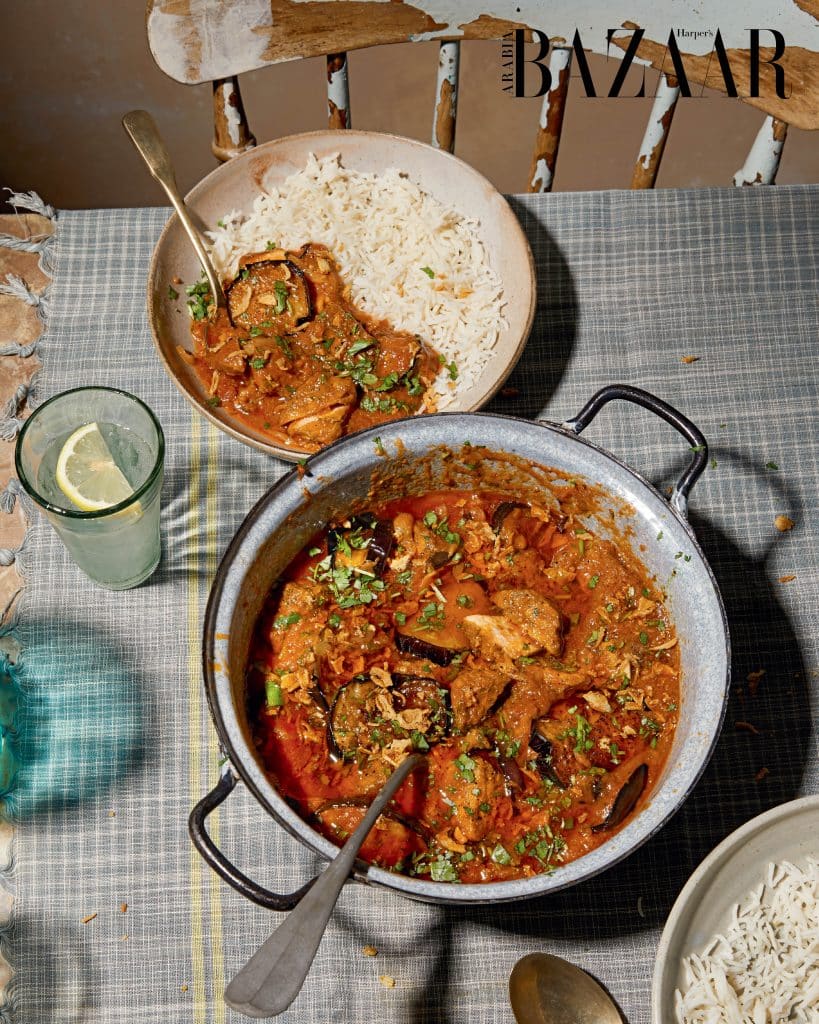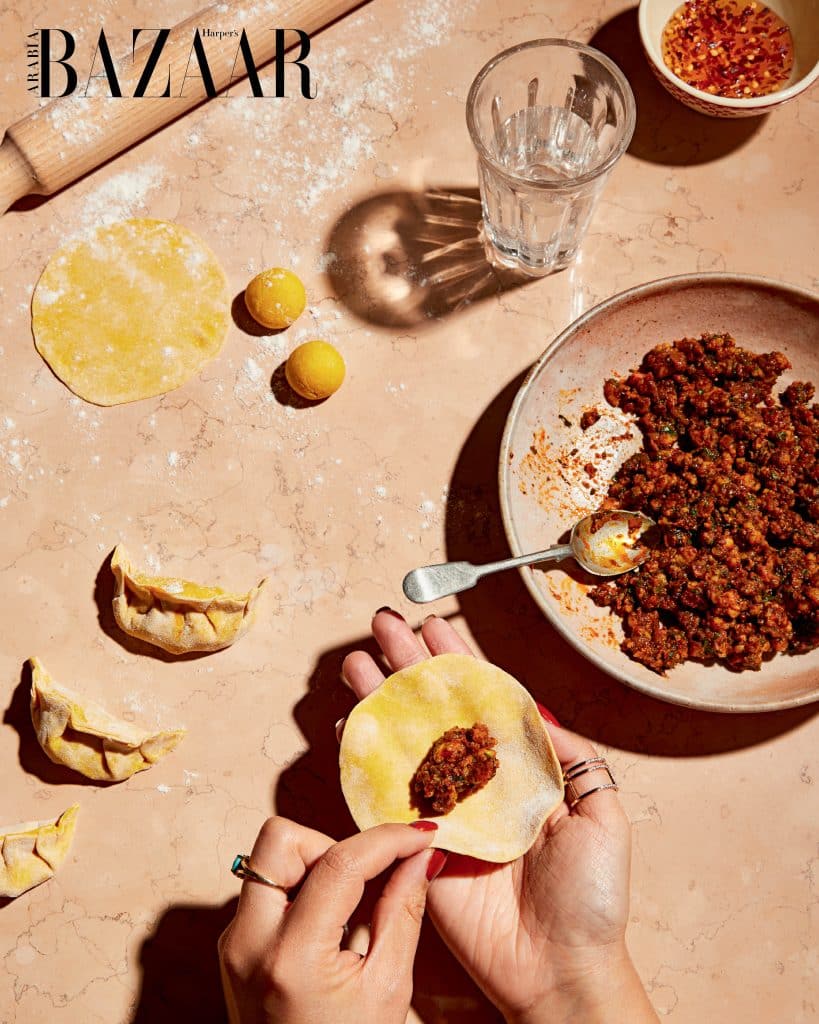
Something’s Cooking: Dina Macki Explores Omani Culinary Wonders In Her Latest Cookbook
Making all the right moves in the kitchen, Dina Macki can now add author to her long list of accomplishments
Writing the first-ever Omani cookbook by an Omani author is a big responsibility, although Dina Macki, the Omani-Zanzibari food developer, presenter, writer and soon-to-be-author of cookbook: Bahari: Recipes from an Omani Kitchen and Beyond, laughs that it’s an accolade many aunties out there may want to dispute.
“I feel a weight on my shoulders, but it’s a happy weight,” says London-based Dina with a smile. “People are trusting me, relying on me to tell them about the food – and it’s not like I grew up there, so I’m learning myself and passing it on.”

Raised in Portsmouth in the United Kingdom, the epicurean is a third-culture kid which is what gave her the outsider perspective required to bring her book to life. “I’m so far removed from my culture and from the place that I live in, that I was the perfect person to write about this,” she explains. “If I look at my Omani friends, none of them are interested in their local food and rely on me to feed them. I’m like, ‘I can’t be the last person in our generation to preserve every recipe!’”
It was through food that Dina first came to reconcile her own identity, something that, like many children of immigrants, was a source of embarrassment for her growing up. While food was an important part of her life (her grandmother cooked traditional foods for the Omani royal family in Portsmouth), Dina had no desire to be involved in the kitchen, despite persistent efforts to enlist her assistance.

It was only during her first Ramadan at university in London, surrounded by international students who knew and loved the country she had distanced herself from, that she began to feel a desire to reconnect with it. To do so, she used food – with the help of her mother and her grandmother, of course. “I was on the phone asking them, ‘What’s this? What’s that? Just teach me anything!”
Making eight or nine different dishes, Dina cooked for her university friends and they loved the food. “It became a thing that I was doing every night,” she reflects, coming to realise, through experimentation, that it was when she cooked dishes from her own heritage that people enjoyed them the most.

It was a lesson she would learn again when, after reluctantly finishing her degree in fashion and marketing – followed by a stint working in music, she started an Instagram account at the urging of a friend. Soon after, she began sharing recipes, and secured her first brand deal.
Beyond lending her curiosity, being a part-outsider also provided her access she might otherwise not have been granted and says: “Everyone is very tribal in Oman, there were many tribes, so, if an Omani who had grown up there decided to do a cookbook and were to travel around the country, either those tribes would not let them in, or they would not have given them the proper recipes,” she explains.

In the course of writing the book, she travelled around the country, speaking to as many Omanis and eating as much different food as possible. What people eat, and which ingredients they use, depends heavily on where they live; whether they are by the sea, or in the mountains. This means that people in one area of the country have no idea what people in another area are eating. What’s more, recipes have adapted over time, varying with migration patterns and the availability of ingredients. As a result, Omani cuisine is vast and nuanced.
Dina tried to include as many recipes as she could in her book (one from every region) and over 80 recipes made it to the final manuscript. Featuring alongside the recipes are essays on everything from specific ingredients to insights into Oman, Zanzibar, Portsmouth, and parts of Dina’s familial and personal history. It was important that Dina’s mother and grandmother be included in the book and while developing the recipes. Dina went to stay with them so they could help her, and both matriarchs appear in photos for the book.

“I speak about them so much in the book that I was like, ‘How can I just not have them?’” confirms Dina. “Any time I speak about my grandma, especially, on social media, everyone connects. They always tell me how much they love seeing them on their screens, because it reminds them and gives them comfort; I wanted the book to have that comfort too.”
It’s not just about preserving her culture’s recipes for Dina. Food is also an innovative way of educating and informing on culture and people and the need to sustain ourselves through food. “It’s probably one the easiest ways to talk about history,” she explains.

Dina hopes that reading the book, and tasting its delicacies, will inspire people to travel to Oman and see its wonder for themselves. But what the chef-turned-author really wants is to see her book in the kitchens of Omanis around the globe, to make it easier for them to access that part of themselves and their culture. “Some people have said to me, ‘You’ve done this for us. We didn’t have any of this and you’ve made it all make sense for us,’” she says, beaming. “That’s the main thing I wanted.”
From Harper’s Bazaar Arabia’s January 2024 issue.
